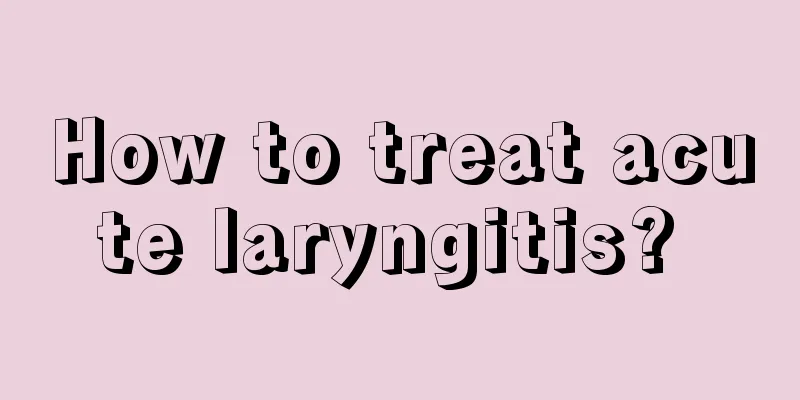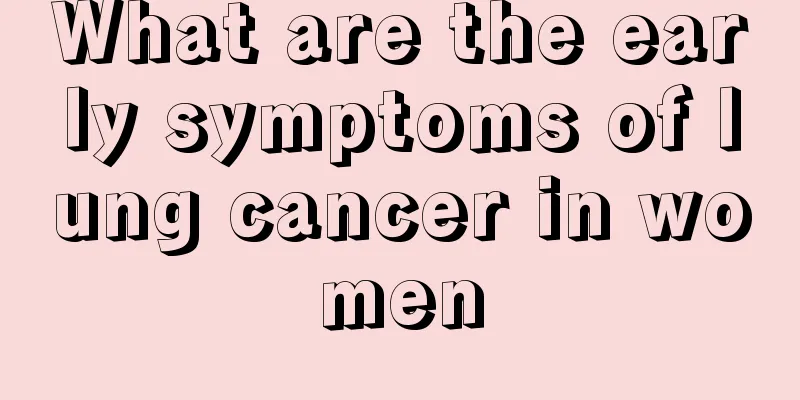How to treat acute laryngitis?

|
Acute laryngitis is a common clinical disease, which mainly occurs in the laryngeal mucosa. Many reasons may cause acute laryngitis, and its symptoms are also very obvious. Generally speaking, acute laryngitis is more common among men and children, and is more serious for children. For this type of problem, timely treatment is necessary. So how should acute laryngitis be treated? 1. Vocal cord rest (vocal rest) The most important treatment measure for acute laryngitis is to rest the vocal cords, not to make sounds or to minimize the number of times and intensity of sounds, so as to reduce vocal cord edema caused by bilateral vocal cord movement and mutual friction caused by pronunciation. We should avoid replacing normal vocalization with whispering, because whispering increases the subglottal pressure and fails to achieve the purpose of resting the vocal cords. 2. General treatment Keep indoor air circulating and moist, avoid cold and high temperature stimulation; ensure adequate sleep and rest, adjust body condition and enhance resistance; avoid dry mouth and tongue, drink plenty of water, eat a light diet, eat vegetables and fruits regularly, avoid spicy and irritating foods, and refrain from smoking and drinking. Avoid allergic foods and irritating gases. Actively treat upper respiratory tract infections and adjacent lesions such as sinusitis, pharyngitis, tracheitis, etc. 3. Antiviral and antibiotic treatment For acute laryngitis caused by viral infection, antiviral drugs can be used on the basis of general treatment, while acute laryngitis secondary to bacterial infection should be treated with oral or injected antibiotics to control inflammation in time. 4. Glucocorticoid therapy Those with obvious congestion and swelling of the vocal cords can take glucocorticoids orally or intravenously to quickly eliminate laryngeal mucosal edema and reduce the degree of hoarseness. For patients with subglottic laryngitis, oxygen should be administered and breathing should be closely monitored, and intravenous glucocorticoids should be administered in a timely manner to prevent worsening of dyspnea. 5. Ultrasonic nebulization inhalation therapy Oral nebulization inhalation therapy can be performed with an antibiotic solution containing steroid hormones, which allows the mist drug to act directly on the throat, helping to reduce inflammation and swelling, thin throat secretions, and relieve throat pain. 6. Symptomatic treatment For those with severe cough, the violent vibration of the vocal cords caused by coughing should be controlled and cough suppressants should be used. For those with more sputum, mucus-stimulating agents can be used. Throat pain can be treated with appropriate throat lozenges and local sprays. Cooperate with traditional Chinese medicine treatment, etc. |
<<: How to treat acute deafness?
>>: What to do with acute tonsillitis
Recommend
Is walnut a fruit?
When it comes to fruits, everyone will list a lot...
Hair on the ears
The ear is one of the more important organs and i...
What disease can a high fever cause
High fever is a very common symptom and also a re...
How to get rid of mosquitoes in summer
Mosquitoes are very annoying animals in summer. T...
Why can't I measure my blood pressure?
When you reach a certain age, especially if you l...
How to treat nasal bone fracture?
Nowadays, many people are engaged in different sp...
Gastric cancer surgery should strive for standardization
Surgery is one of the effective ways to treat gas...
What are the dietary recommendations for three days after thyroid cancer surgery
The diet for three days after thyroid cancer surg...
Early symptoms of uterine cancer Uterine cancer
Early symptoms of uterine cancer usually include ...
How do happy couples get along?
Many married people often struggle with how to ge...
How to prevent liver cancer metastasis? This can prevent liver cancer metastasis
Cancer itself is difficult to treat, especially l...
What is the correct method of artificial respiration
We all know that when a patient faints and needs ...
Reflux esophagitis cough
Reflux esophagitis cough is a disease in which co...
What are the dangers of eating raw maternal slices
Shimusheng tablets belong to the category of vita...
Brief analysis of the treatment method of prostate cancer: radiotherapy
With the continuous advancement of science and te...









